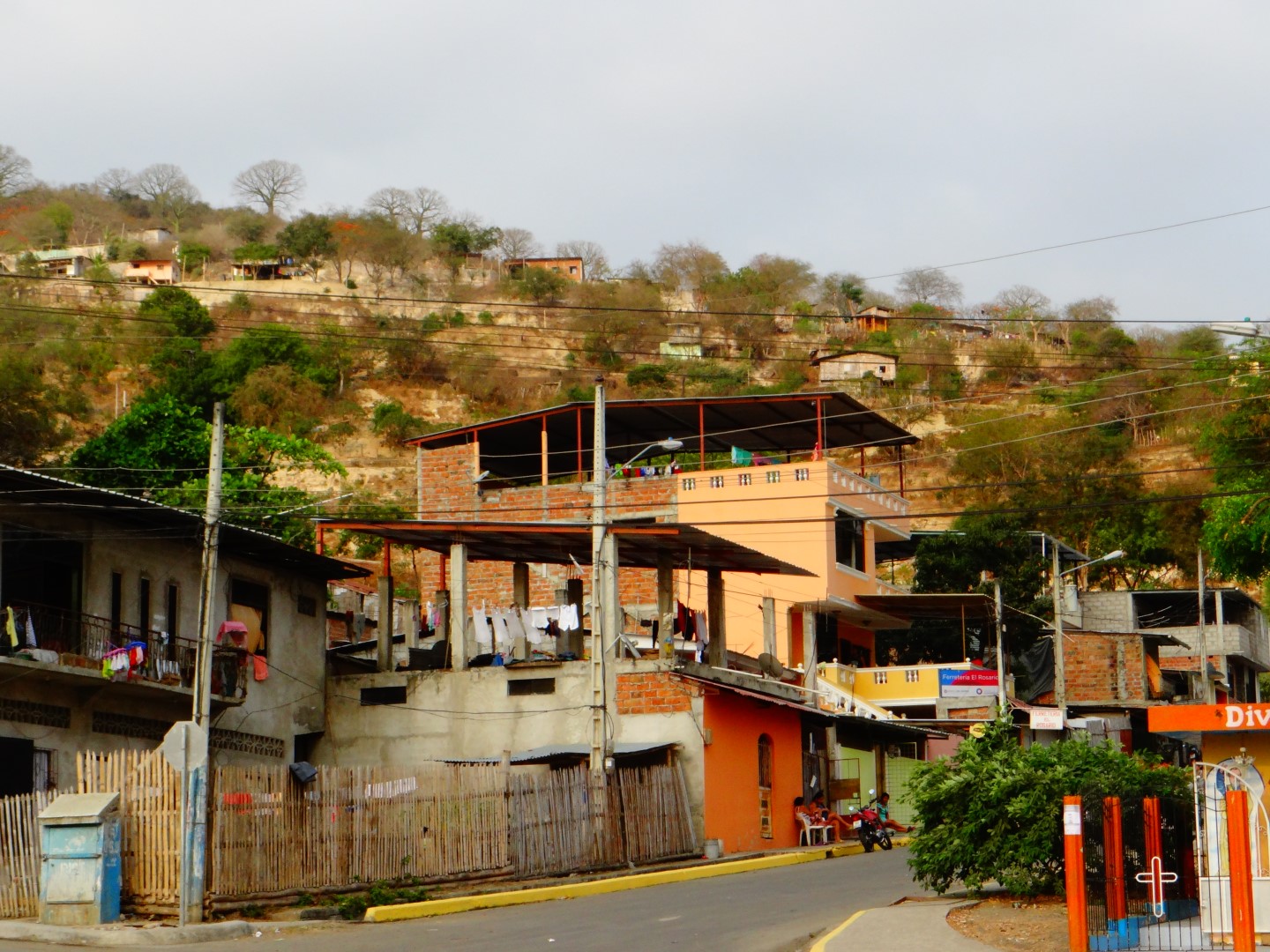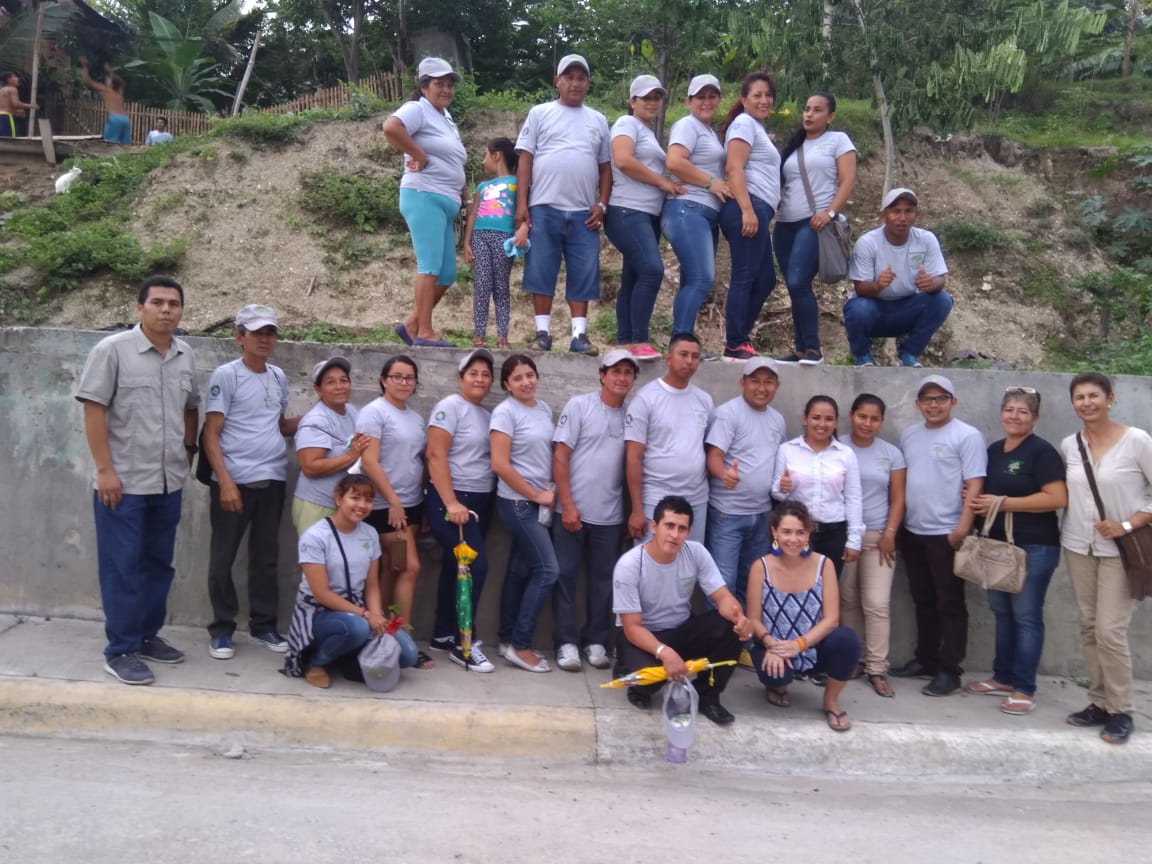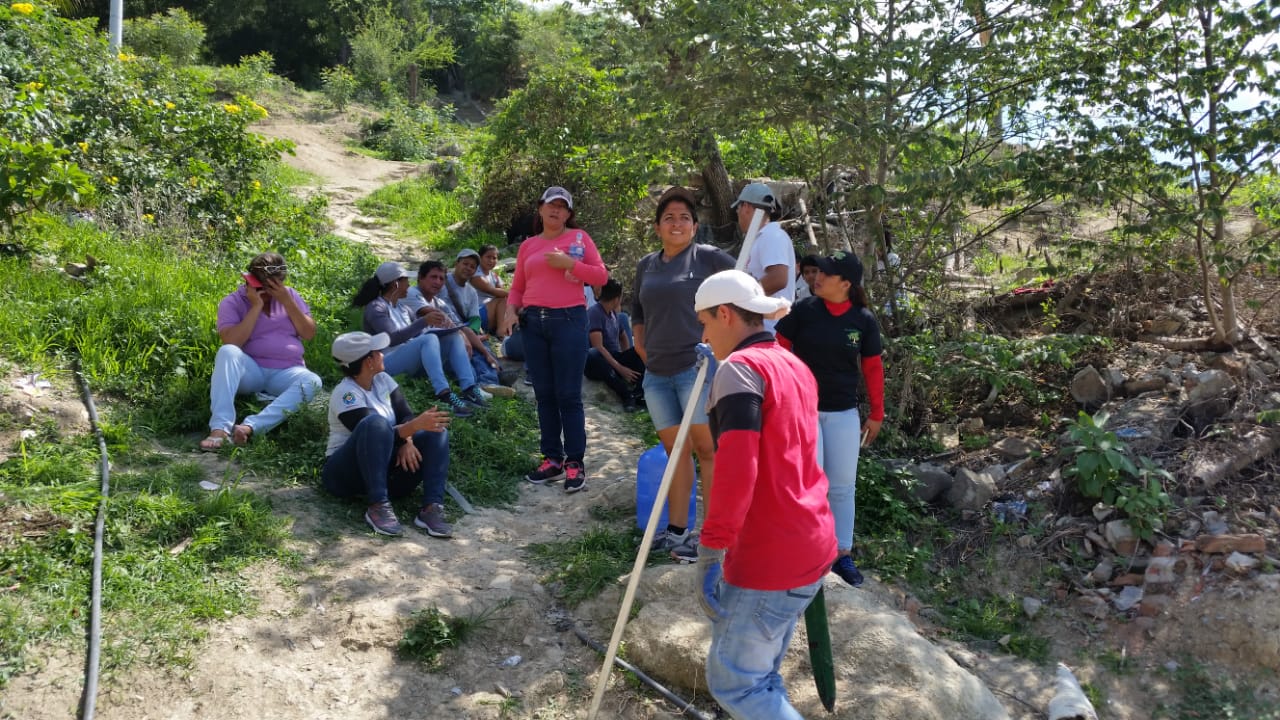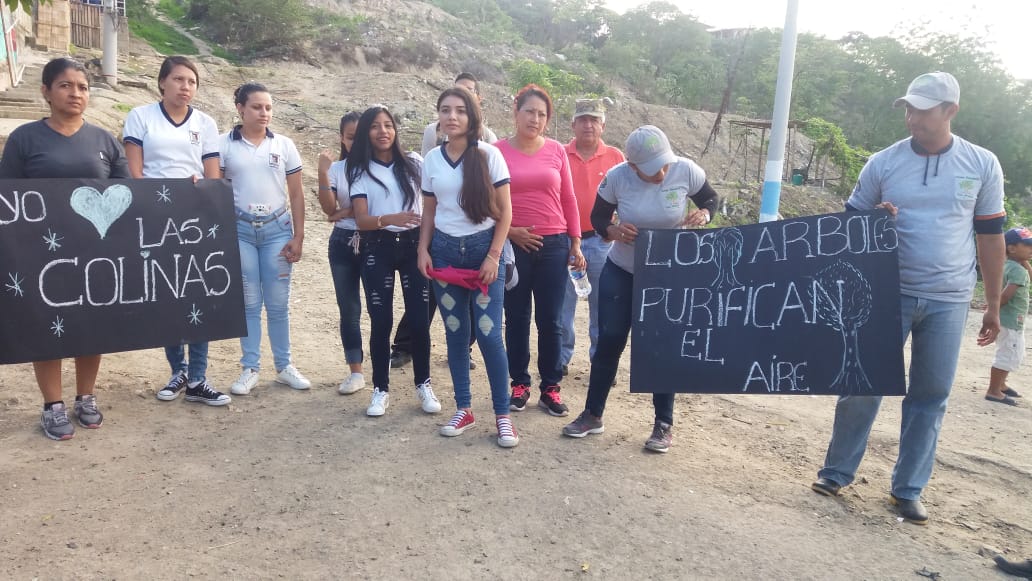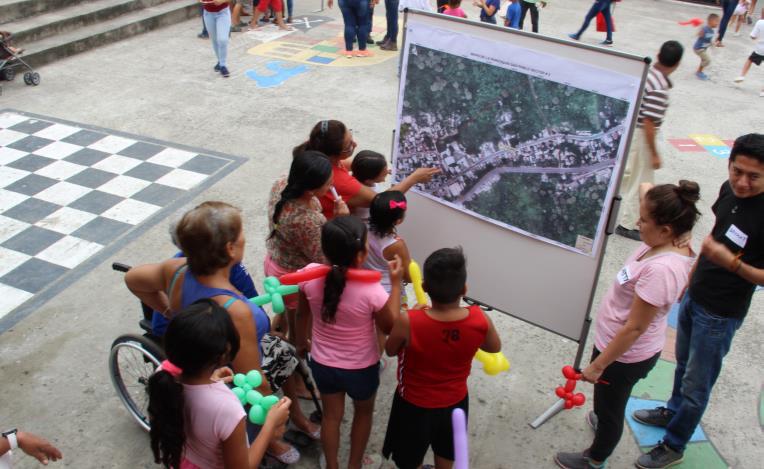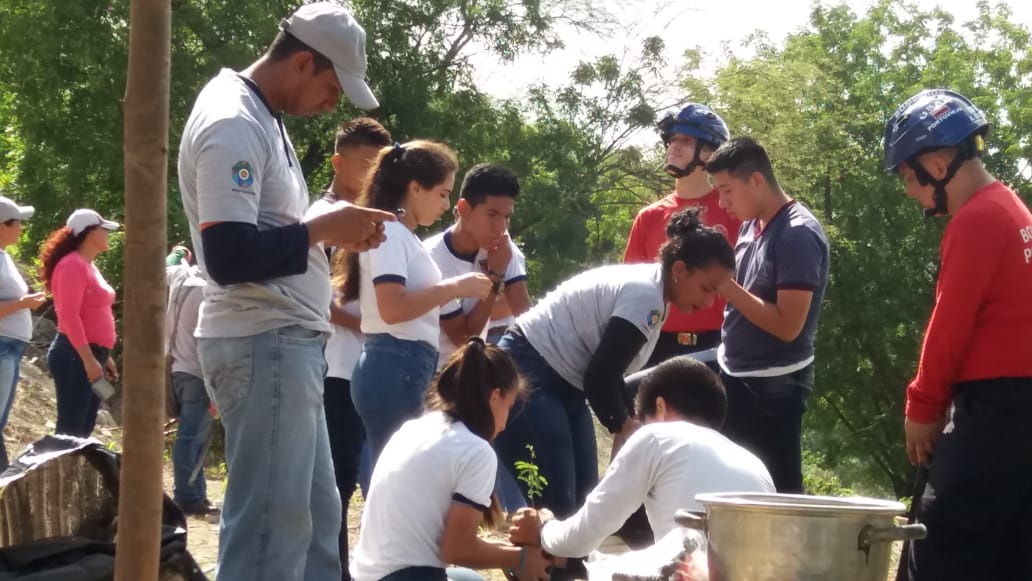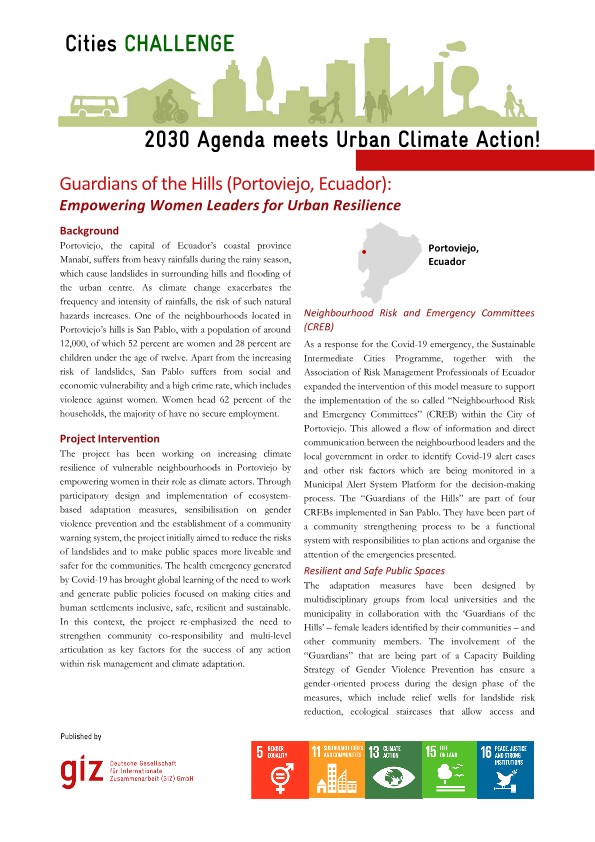Ecuador
Guardians of the Hill
Portoviejo, Ecuador
The Urban Living Lab ‘Guardians of the Hills’ (2019-2021) of the ‘CitiesCHALLENGE: 2030 Agenda meets Urban Climate Action’ increased the climate resilience of vulnerable neighbourhoods in Portoviejo by strengthening female leaders as decision-makers for urban climate action. The Urban Living Lab’s vision was to make the San Pablo neighbourhood more resilient by providing safer and more liveable public spaces, for instance by implementing ecosystem-based adaptation measures designed through participatory methods.
Female leaders or ‘Guardians’ organised and changed their neighbourhood by appropriating public space and making it healthier, greener, safer and more secure through a community-based disaster management and pandemic monitoring, as part of the municipal risk management system. The scope of the Urban Living Lab has expanded further as a result of the COVID-19 pandemic. A stronger focus was placed on preventing violence against women, an issue which was exacerbated during the pandemic.
Facts
- WHO
Guardians of the Hills, Parish Committee of San Pablo, Portoviejo Municipality, Association of Risk Management Professionals of Ecuador, Academic Network for Urban Sustainable Development.
- WHAT
- WHEN
- WHY
- GERMAN DEVELOPMENT & COOPERATION PARTNERS
- BUDGET
216 900 € after COVID-19 pandemic extension
Zoila Moro
One of the “Guardians of the Hills” in Portoviejo, Ecuador
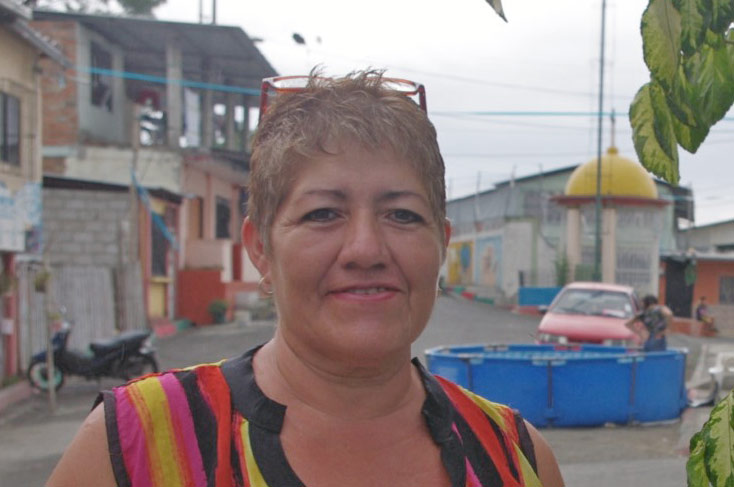
Zoila Moro: “What mobilises people is social action”
One female leader and matron of the parish stands out: Zoila Moro inspires her neighbours with her enthusiasm and her commitment to take ownership of public spaces, which she wants to make friendlier and safer. Zoila feels a strong sense of belonging to San Pablo and speaks of her neighbours as her ‘great neighbourhood family’.
The community characterises her as a brave, enterprising, and hard-working leader.
Zoila herself says, ‘I do a bit of everything, I’m not scared of work and I am the pillar of my family’. In the mornings she works in the cafeteria of the Juan Montalvo school, in the evenings she dedicates herself to her bazaar. She inherited a small shop from her father, but she lost a lot in the last earthquake: ‘Bottles of oil and fizzy drinks were broken; I lost everything… but anyway, I didn’t stop, I took out a loan and I established a mini-bazaar.’
Zoila Moro is a community leader and twice-elected president of the parish. She smilingly admits to being ‘involved in almost everything. […] I am also a health promoter and I organise bingo events and, of course, the festivals…’ She remembers that in the 1960s, the hills of San Pablo looked totally different. ‘My father arrived here more than 60 years ago when this was nothing but forest; very few families lived here.’ By now, less trees cover the hills of San Pablo. This leads to heavy rainfalls during the rainy season, causing landslides in surrounding hills and flooding of the urban centre. Zoila dreams of seeing her hill ‘green, full of carob, kapok and tamarind trees’.
She shares the stories that her grandmother told her when she was a girl: ‘She told me that the hill used to be full of carob trees, which were very large, and which gave them a lot of shade’. Smiling playfully, she says that, ‘since there were so many hills, trees and fauna, there were said to be elves’.
Zoila is convinced that they should restore the hill. This is why she decided to be involved in the Guardians of the Hills Urban Living Lab. She mentions that ‘what mobilises people is social action’. Therefore, she aims to include the community in her struggle of restoring public spaces, encouraging the community to paint houses and arranging flowers and plants on her block.
Furthermore, ecosystem-based installations such as orchards, terraced slopes, eco-paths and/or playgrounds, which stabilise the slopes and allow for increased rainwater infiltration, aim to help mitigate the risk of landslides and support the restoration of the hill.
Many of the people involved with Guardians of the Hills are women. This makes for a further positive effect of the initiative: through becoming group leaders, many women are encouraged to speak up on domestic violence, and to identify and guide procedures to support women affected by violence. Zoila says that transforming your neighbourhood is how you fix up your house: ‘based on needs but in an organised and entrepreneurial way’. For her, every day her struggle is in recovering public spaces, calling upon the community to paint the houses and arrange her block with flowers and plants.
The community leader emphasises that awareness and sensitivity to the needs of animals are crucial aspects of a well-functioning community, explaining that ‘in the neighbourhood there is room for us all; animals are part of our lives. How people take care of them and love them says a lot about the wonderful people that we have in our parish’. Her generosity and impetus to serve her large family is touching. ‘I am silly when it comes to doing something for us. I could spend days on end knocking on doors until we achieve our goal.’ This is Zoila Moro, a sensitive fighter who mobilises people, enables them to understand how a community is built, and encourages every ‘family member’ to become a more proactive person, making for a committed and resilient neighbourhood.
Learn more about the Guardians of the Hill.
Resource Hub
Factsheet Ecuador
Download the Cities CHALLENGE Factsheet from our Resource Hub!

